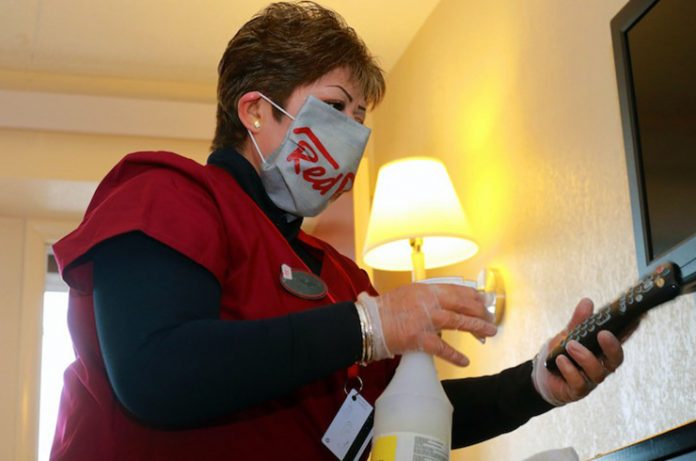
Hospitality—the people business—is short on people. Finding, training, and retaining skilled workers has challenged operators for years, and now with the economy beginning to pull out of the recession caused by the COVID-19 pandemic, hotels are finally able to increase their staff sizes—only to encounter competition from every other business in the process of reopening.
Discussion around the labor shortage and ways to mitigate its impact is taking place across the industry, from major media channels to AAHOA town halls. Every hotel, from economy to luxury, is grappling with the same challenge: how can they increase staff sizes in an economy that has just begun to rouse itself while remaining profitable? The solution to this problem will differ based on a hotel’s location, business mix, and more.
High-level strategies, such as hiring programs overseen by parent hotel companies, are only one part of the solution to the industry’s labor shortage. Operators must first confront the reasons for the shortage, as hospitality remains one of the few employment options with strong career paths that lead diligent, effective workers from entry-level positions to management—and even property ownership.
Who Is Today’s Worker?
The employment landscape has gone through an unprecedented transformation over the past year. Social distancing guidelines and reduced operating budgets at the height of the pandemic saw many hotels cut back their staff more than ever previously, including during the 2008 financial crisis. Many of these workers were forced to seek new employment, and today they may simply not be available. As such, hotels cannot count on their previous up-and-coming employees to neatly step back into their roles now that bookings have started to roll back in.
Furthermore, many roles within hospitality have yet to still return. While hotels must prepare to accommodate more guests as pandemic travel guidelines continue to ease and travel gradually resumes, many operators are still not seeing enough business to staff every position immediately.
Workers are in search of stability after coming out of the pandemic, and there is also an ever-present fear that automation is replacing their jobs. Combatting these concerns will be a challenge going forward. While hotels are continuing to adopt automation to assist with revenue management and data analytics, people remain the key to hospitality’s success. Hotels should show future employees how technology is being used in their favor, for communication, scheduling, and security.
Frontline employees are the heart of hospitality, and they deserve to know their value. Hotels must do more than celebrate them—they have to show the value of working for your property and what the experience is providing them going forward.
Keeping the Best
Turnover remains high in hospitality, with hotels diligently training workers who often leave, taking those skills to other industries. The hotel industry excels at reshaping entry-level workers into management material, and it must do everything it can to hold onto these workers.
Hotels are best positioned to attract highly motivated workers when they are able to clearly show the opportunities available to those who are dedicated to hospitality, and how your hotel or its parent company can support their career growth. With focus on job security growing, prospective employees want to know what opportunities are available to them one, three, or five years down the line.
By showing how talented workers are valued on property, operators can similarly articulate the value of their hotel to prospective workers. This is going to be increasingly important as the business of hotels continues to change.
Hospitality for All
With roles merging, brand standards changing, and operations being turned upside down over the past 14 months, some interested in hospitality may not know exactly what the business looks like today. Providing accurate clarification on duties, requirements, and opportunities for advancement may catch the eye of someone with an eye for service. This is particularly true of the new technology used by hotels, and how it can be used to improve the hotel work experience.
It’s important for hotels to show how they are putting people first, and that the values of hospitality extend to both sides of the front desk. This can be shown through flexibility with scheduling, monetary incentives based on performance, or concessions made during the hiring process to assist with onboarding. Workers can tell when they are and aren’t valued, and sometimes small compromises from hotel leadership go a long way toward showing their worth.
Just as hotels have suffered setbacks due to the pandemic, so have workers struggled to adapt to the rapid changes to their way of life. With jobs coming back online across the country, workers can choose where to begin their journey of economic recovery. As hoteliers, we have to make a case for ourselves.
Sponsored by Red Roof











